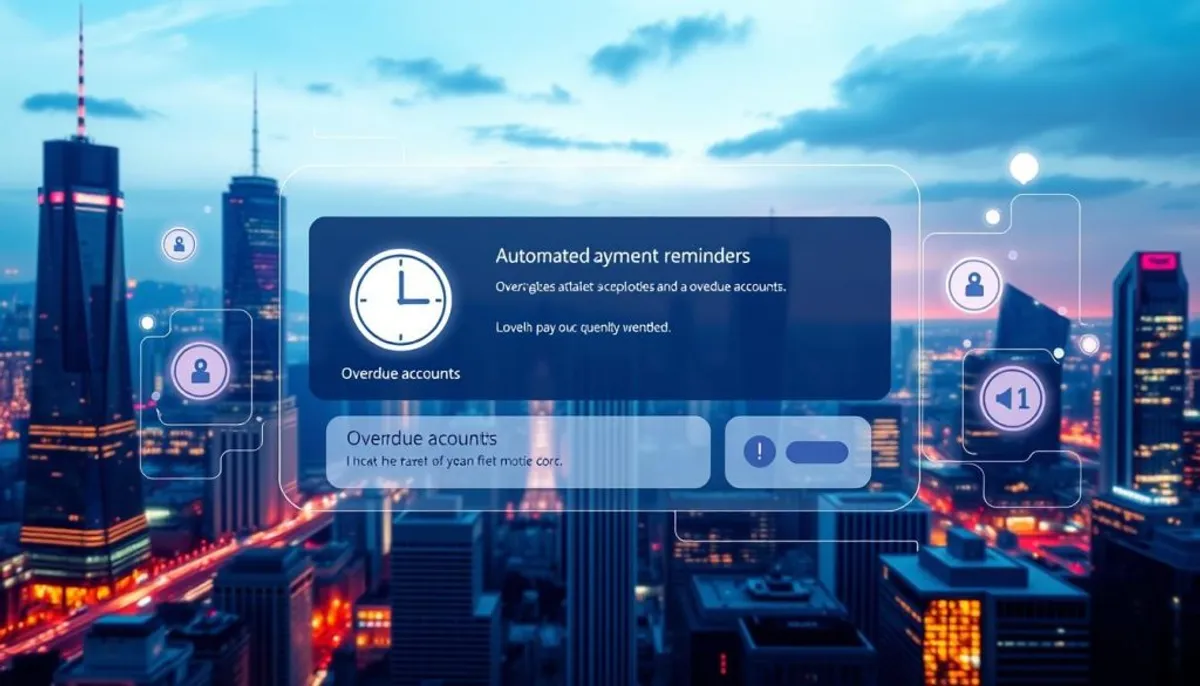Welcome to our comprehensive guide on collection agencies that buy debts. In the realm of finance, debt buyers are pivotal in managing delinquent accounts. These firms purchase charged-off debt acquisitions from creditors, often at significant discounts.
Debt buyers have revolutionized the debt collection landscape, establishing a multibillion-dollar industry in the United States. They span from small, private entities to large publicly traded corporations. All aim to recover more than they initially paid for the debt.

Upon debt sale, ownership shifts to the debt buyer. This transition can occur without the debtor’s awareness, though agencies must inform debtors before collection attempts. Delinquent debt collectors employ diverse tactics, including phone calls, letters, and legal action threats.
It’s crucial to acknowledge that debt collectors adhere to both state and federal laws. The Fair Debt Collection Practices Act (FDCPA) and Fair Credit Reporting Act dictate ethical collection practices. These laws bar harassment and safeguard consumer rights when dealing with debt buyers.
Key Takeaways
- Debt buyers purchase unpaid debts at significant discounts
- The debt buying industry is worth billions in the US
- Debt collectors must follow strict legal guidelines
- Consumers have rights when dealing with debt buyers
- Debt sales can occur without the borrower’s permission
- Collection efforts may continue even after the statute of limitations expires
Understanding Debt Collection and Debt Buyers
Debt collection is a complex process aimed at recovering money owed by individuals or businesses. The industry has undergone significant changes, with non-performing loan investors now playing a pivotal role in the debt market.
What is Debt Collection?
Debt collection involves the pursuit of unpaid debts from borrowers. Collection agencies typically charge creditors 25% to 50% of the recovered amount. The Fair Debt Collection Practices Act (FDCPA) regulates these practices, prohibiting harassment and setting specific time limits for contact.
How Debt Buying Works
Debt buyers, or defaulted account buyers, purchase bad debt portfolios from original creditors. They often acquire these debts for pennies on the dollar. For instance, a debt buyer might pay $250 for a $5,000 debt. This practice has led to a 220% increase in legal collections from 2008 to 2018 for some major companies.
Types of Debt Purchased by Collection Agencies
Collection agencies buy various types of debt, including credit card balances, medical bills, and personal loans. The statute of limitations for debt collection varies by state, typically ranging from three to six years.
| Debt Type | Average Purchase Price | Collection Success Rate |
|---|---|---|
| Credit Card | $0.04 per dollar | 20% |
| Medical | $0.02 per dollar | 15% |
| Personal Loans | $0.05 per dollar | 25% |
Understanding these aspects of debt collection and buying is crucial for both consumers and industry professionals. It’s important to note that debtors have rights, including the ability to dispute a debt within 30 days of initial contact.
The Process of Debt Sales to Collection Agencies
When accounts become significantly delinquent, creditors often sell these debts to collection agencies. This process typically starts after three missed payments. Distressed debt purchasers acquire these uncollected receivables at discounted prices, sometimes for mere pennies on the dollar.
The sale involves transferring account information and ownership rights to the debt buyer. Uncollected receivables acquirers must then send a debt validation letter within five days of initial contact. This letter details the debt amount, original creditor, and dispute rights.
| Aspect | Details |
|---|---|
| Types of Debt Purchased | Credit card debt, medical bills, personal loans, utility bills |
| Debt Buyer Purchase Price | Often pennies on the dollar |
| Required Information | Proof of debt ownership, debt amount details (principal, interest, late fees) |
| Contact Restrictions | No contact before 8:00 a.m. or after 9:00 p.m. |
The sale of debt can impact a borrower’s credit score and create a new entry on their credit report. Distressed debt purchasers must adhere to regulations like the Fair Debt Collection Practices Act. This act prohibits harassing, abusive, or fraudulent collection tactics.
State-specific regulations also apply. For example, collection agencies in Maryland need a license from the Department of Labor, Office of Financial Regulation. In Texas, the Texas Debt Collection Act regulates uncollected receivables acquirers. It prohibits various abusive practices and imposes penalties for violations.
Collection Agencies That Buy Debts: Key Industry Players
The debt buying industry has experienced remarkable growth. Collection agencies that buy debts are pivotal in the financial landscape. These entities acquire vast portfolios of delinquent accounts, with the goal of collecting on them.

Major Debt Purchasing Companies
In 2015, Encore Capital Group became the largest debt buyer in the United States. The industry’s expansion is evident, with debt buyers purchasing around $110 billion in face value of delinquent debts by 2005. By 2008, nine of the largest debt buyers collectively acquired 76.1% of the total available debt.
Regulatory Compliance Requirements
Debt purchasing companies must adhere to stringent regulations. The Fair Debt Collection Practices Act (FDCPA) establishes standards for debtor treatment, prohibiting harassment and unfair practices. The Dodd-Frank Act of 2010 further tightened industry regulations. Compliance involves proper licensing, data security measures, and adherence to consumer protection laws.
Industry Best Practices
Collection agencies that buy debts adhere to best practices for ethical operations:
- Maintaining accurate records
- Providing clear communication to debtors
- Sending debt validation letters within five days of first contact
- Using advanced technologies for data analysis and portfolio management
- Adhering to ethical collection methods
The debt buying industry continues to evolve, influenced by technological advancements and regulatory changes. As of 2017, the $13.7 billion industry employed 130,000 people across 6,000 collection agencies, showcasing its substantial economic impact.
Legal Framework and Consumer Rights
The Fair Debt Collection Practices Act (FDCPA) is a cornerstone of consumer protection within the debt collection sector. Established in 1978, it mandates strict guidelines for debt buyers and delinquent debt collectors. Its primary objective is to safeguard consumers from unfair practices, ensuring a fair environment for reputable collection agencies.
Fair Debt Collection Practices Act (FDCPA)
The FDCPA pertains to debts incurred for personal, family, or household purposes. It delineates specific communication limits and prohibited practices for debt collectors. For example, collectors are restricted from contacting consumers before 8 a.m. or after 9 p.m. They are also prohibited from employing harassing or abusive tactics.
State-Specific Regulations
Many states have enacted laws that either mirror or extend the FDCPA. These regulations often provide additional consumer protections or address areas not covered by federal law. It is imperative for debt buyers to adhere to both federal and state-specific regulations in their operations.
Consumer Protection Laws
Consumer rights in debt collection are further safeguarded by laws beyond the FDCPA. The Fair Credit Reporting Act, for instance, regulates how debts are reported on credit reports. Consumers have the right to dispute inaccuracies and request debt validation. They can also instruct collectors to cease communication or interact through an attorney.
| FDCPA Provision | Description |
|---|---|
| Communication Times | No contact before 8 a.m. or after 9 p.m. |
| Workplace Contact | Prohibited if known to be inconvenient |
| Social Media | Prohibited from public posting about debts |
| Electronic Communications | Must offer opt-out method |
Impact on Consumer Credit Scores
Charged-off debt acquisitions and bad debt portfolios have a profound effect on consumer credit scores. Accounts sent to collections typically manifest as negative entries on credit reports. These entries can persist for up to seven years, leading to a significant decline in credit scores.
The influence of collections on credit scores is considerable. Late payments and collection accounts can severely damage scores, notably for those with previously pristine credit. This negative consequence hinders consumers’ ability to secure new credit or favorable interest rates on loans.
Recent adjustments in credit reporting have sought to mitigate the long-term effects on consumers:
- Newer credit scoring models, such as VantageScore 4.0 and FICO 9, may exclude paid collection accounts
- Only unpaid medical collections exceeding $500 now appear on credit reports
- Debt collectors must employ various contact methods before reporting to credit bureaus
Despite these advancements, most creditors continue to rely on older credit reporting models for lending decisions. As of August 2021, approximately 64 million Americans faced debt in collections, underscoring the widespread issue.
Consumers possess rights when confronted with collection accounts on their credit reports. They can dispute inaccuracies and, in certain instances, request goodwill removals. Grasping these rights is essential for mitigating the effects of charged-off debt acquisitions on credit scores.
Alternative Solutions with ti3 Platform
The ti3 platform introduces a groundbreaking method for managing non-performing loans and defaulted accounts. It presents a cost-effective alternative to traditional debt collection agencies. This Software-as-a-Service solution revolutionizes the management of overdue accounts.
Automated Payment Reminders
Ti3 implements a systematic reminder system, dispatching weekly notifications to debtors over a 5-week span. This consistent outreach enhances engagement and boosts the chances of successful debt resolution.

Streamlined Collections Process
The platform offers diverse payment solutions to effectively engage debtors. It accommodates various payment methods, including Visa, Amex, and Mastercard. Ti3 also empowers debtors to create customized payment plans, promoting a collaborative debt settlement approach.
Client Relationship Management
Ti3 emphasizes the importance of maintaining positive client relationships during the resolution of unpaid accounts. It offers a 20% discount to debtors and boasts a high settlement success rate. With an average settlement offer of $580, ti3 demonstrates its capability in achieving mutually beneficial resolutions.
For creditors, ti3 presents affordable pricing options: 99 cents per invoice or a $49 monthly subscription plan. The platform integrates seamlessly with Quickbooks, Excel, Stripe, and PayPal, enhancing financial operations for non-performing loan investors.
Ti3’s innovative, solution-focused approach distinguishes it in the debt collection industry. It emphasizes engagement and flexibility, offering a novel perspective for defaulted account buyers seeking efficient, ethical collection methods.
Strategies for Dealing with Debt Buyers
Understanding your rights and options is paramount when confronted with distressed debt purchasers. These entities acquire uncollected receivables at a fraction of their original value, leaving room for negotiation.
Debt Validation Requests
Initiate by requesting debt validation. Debt collectors must furnish detailed information within five days of initial contact. You have 30 days to dispute the debt in writing, halting collection efforts until verification is provided.
Negotiation Tactics
When engaging with distressed debt purchasers, consider these strategies:
- Offer a lump-sum settlement
- Propose a payment plan
- Negotiate interest rates or fees
Debt collectors can only contact you between 8 a.m. and 9 p.m. If you’re feeling overwhelmed, seeking advice from a credit counselor or attorney is advisable to safeguard your rights.
Settlement Options
Settling with uncollected receivables acquirers can be advantageous. Below is a comparison of settlement options:
| Option | Pros | Cons |
|---|---|---|
| Lump-sum payment | Quick resolution, possible larger discount | Requires immediate funds |
| Payment plan | More manageable payments | Longer repayment period, less discount |
| Debt forgiveness | Partial debt elimination | Potential tax implications |
Ensure agreements are in writing. Be mindful of your state’s statute of limitations on debt collection, typically 4-6 years. Vigilance against fake collection agencies attempting to collect on outdated or non-existent debts is crucial.
Time Limitations and Statute of Limitations
Collection agencies that buy debts must adhere to time limitations known as statutes of limitations. These legal timeframes vary by state and debt type, impacting how long debt purchasing companies can pursue collections.
Statutes of limitations typically range from 3 to 10 years, with some states having longer periods. For example, California has a 4-year limit, while Illinois extends to 10 years. Debt types are categorized as written, open-ended, oral, and promissory notes, each with different time limits.
It’s crucial to note that certain actions can reset the statute of limitations clock. Making a partial payment or acknowledging the debt’s validity to a collection agency can restart the time period, giving debt buyers more time to collect.
| State | Written Contracts | Open-Ended Accounts | Oral Agreements |
|---|---|---|---|
| California | 4 years | 4 years | 2 years |
| Texas | 4 years | 5 years | 4 years |
| New York | 6 years | 6 years | 6 years |
Understanding these time limitations is essential for consumers dealing with debt purchasing companies. While collectors may still attempt to collect after the statute expires, they cannot legally sue for payment. Consumers should be aware of their rights and consider consulting a lawyer to determine the applicable statute of limitations for their specific debt situation.
Conclusion
The realm of debt buyers and delinquent debt collectors is intricate and in constant flux. With nearly 7,000 collection agencies operating in the U.S. and an industry revenue of $13.4 billion, it’s evident that charged-off debt acquisitions are pivotal in our financial environment.
Consumer protection is paramount in recent regulatory developments. The Fair Debt Collection Practices Act (FDCPA) imposes stringent guidelines on debt collectors. It restricts contact to seven times per week and prohibits calls outside of 8 a.m. to 9 p.m. The Consumer Financial Protection Bureau (CFPB) has also introduced new rules in 2021 to bolster consumer rights.
For individuals facing debt collection, it is imperative to understand their rights. Debt buyers must furnish specific information upon contacting you. You possess the authority to request debt validation. Given that one-third of consumers report interactions with debt collectors, grasping these protections is more critical than ever.
Looking ahead, innovative solutions such as the ti3 platform present novel avenues for debt management. By remaining informed and exploring all avenues, consumers can confidently navigate the complex terrain of debt collection.
RelatedRelated articles



